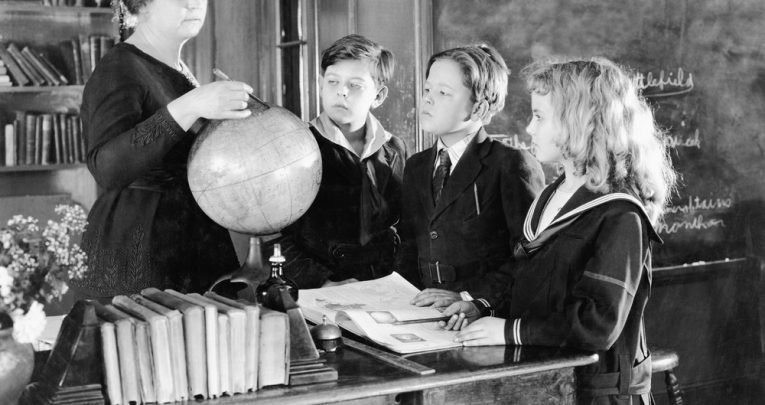“Selection by academic ability is a futile attempt to turn the clock back”

Investing in grammar schools won᾿t fix social mobility, says Kevin Harcombe. We'd be better off with properly funded comprehensives…

Grammar schools – or ‘#grammerschools‘, as Twitter would have it – are back! Navy blue gym knickers, corporal punishment, class sizes of 40, outside lavatories and TB can’t be far behind, as we all hurtle through the nostalgia vortex back to the future… I remember grammar schools. I went to one in the 70s. It had good teachers and I did well. In the noughties my own children went to our local comp. They had good teachers and they did well. Systems come and go, but it is top-notch teaching that makes the difference – be it in a free school, state school or Eton.
Why, then, is Empress Theresa May fiddling with our education system while Britain burns? No one under 30 can afford to buy a home, economic growth is sluggish, trains don’t work, roads are gridlocked, electricity generation is either in disarray or sold to the Chinese for 50p, and junior doctors are going on strike because Hunt is shafting the NHS they love. And how are we to solve this mess? By bringing back selective schools, of course!
Education has already been fiddled with more often than a VW emissions test. Leave us alone for a bit, fund us properly and we’ll deliver.
A distraction from the real issue
The government has form for this education nostalgia trip. Handwriting is being graded again, in an age when even greetings cards are written on a computer keyboard. Children have to be able to identify fronted adverbials and other arcane grammatical features, presumably because some bright spark thought it was what top independent schools do, despite it being completely bloody worthless.
Top independent schools are more likely teaching students to make lucrative apps such as Pokemon GO, while us poor suckers are trudging through useless parsing exercises and developing copperplate script, like some hapless footman with ideas above his station.
Education minister Nick Gibb defended the grammar school policy (half-heartedly, admittedly) by arguing it would enable more working-class children to become judges or barristers. Michael Wilshaw, increasingly a beacon of wisdom as he nears the Ofsted exit door, said the idea that grammar schools aid social mobility was ‘tosh and nonsense’. Hear, hear!
Social mobility to the very top is blocked by class divisions. Top public school alumni make up a closed-shop of senior positions in law, finance, the judiciary and even the press. A first-class Russell Group graduate can’t work for this or that top accountancy firm because ‘he looks uncomfortable in a suit’, or wears brown shoes rather than Church’s black Oxford brogues.
And if you’re a woman, forget it. This old boys’ network is whatever the opposite of a meritocracy is – a combination of plutocracy, nepotism and cronyism which I shall call the ‘twatocracy’. The grammar school furore is simply a distraction from the real issue of entrenched institutional elitism, and an underfunded and deliberately fragmented education system that’s being set up to fail, before being privatised by said said twatocracy – aided and abetted by a dysfunctional, disjointed, discredited and dismal DfE.
Pointless revivalism
Grammars will suck in more than their fair share of funding, while the rest of us won’t have two iPads to rub together. The London Challenge [PDF] transformed comprehensive schools in the capital, partly because the scheme was so well-funded. Properly resourced comprehensives (and academies still follow a comprehensive model) are a better solution than the imperfect harvesting of the brightest and best through selection at age 11 or 13.
If you thought SATs were high pressure for teachers, schools, children and families, imagine the selection tests with your current Year 6. Or maybe they’ll ditch tests for a reality TV format – The Great British Test Off. Or, for those who fail the entry exam, Strictly Come Duncing. Former education secretary, Ed Balls, is already on Strictly, so he can join Len, Bruno, Darcy and the sour-faced one in choosing which of the dunces will be going to Blackpool, or other underperforming coastal authorities.
Like Brexit, selection by academic ability is a futile attempt to turn the clock back to the ‘good old days’ when Britain was top dog. In a tailspin of terminal nostalgia, we long for the way things supposedly used to be. In 2016, we look backwards for a second, only to find that when we turn round again everyone else has buggered off ahead of us. Yet Rather than head off after them in an attempt to shape the future, we instead indulge in the comforting but pointless revivalism of stuff we used to do in the 1950s.
Kevin Harcombe is a Teaching Award winner and headteacher at Redlands Primary School, Fareham












